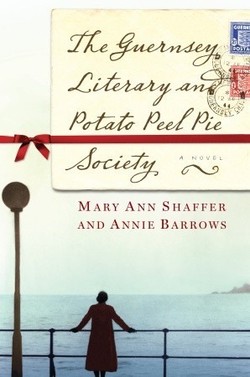
Written in epistolary form, this was a quick read that moved from letter to letter. This is also definitely a book for book lovers, with such wonderful quotes as "Because there is nothing I would rather do than rummage through bookshops,...I have gone to them for years, always finding the one book I wanted- and then three more I hadn't known I wanted." I also ended up learning about the Guernsey Occupation, which I had no idea about and more about the effects of WWII in Great Britain. In learning about characters through letters, the best molded character ended up being the one person not present, but whom everyone else wrote about. This is very important to the book, but did leave me lacking in characterization for some of the people writing the letters. Everyone did seem to have a very similar voice in their letter writing and I constantly had to look at who was writing a letter to whom. Otherwise, this is a charming, heartfelt book that bookish people will enjoy.


